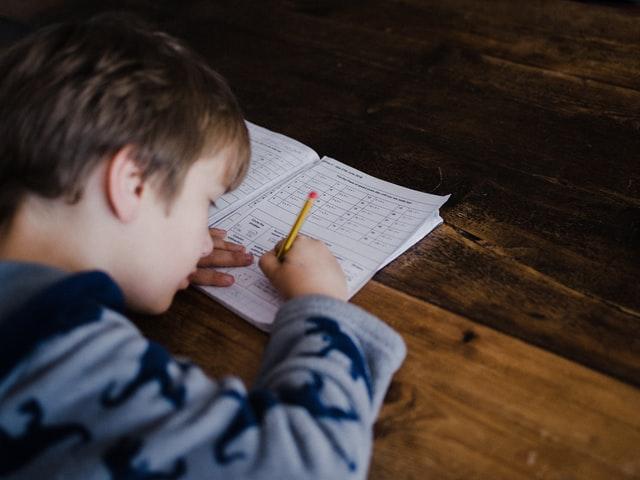When it comes to your child’s education, their vision is an invaluable tool. 80% of learning today is done through the visual system. This includes tablets, smartboards, and computers, along with traditional books and the board at the front of the classroom.
Children who have difficulty reading and writing are often labeled as having learning disabilities and placed in remedial classrooms. They may never have had their vision assessed. If your child is having trouble with reading and writing, the problem could be their eyes.
How Vision Affects Learning
Your child relies on their eyes to learn. For your child to be able to see and take in information, their eyes must work together.
If their eyes aren’t working in harmony, your child may have trouble staying focused. They may find it hard to read or lose their place. They might skip lines or have poor reading comprehension. When it comes time for homework, your child might have trouble staying on task. All of these issues can lead to anxiety and low self-esteem.
Learning-Related Vision Issues
Some children with learning difficulties do have legitimate learning disabilities. For others, learning problems could be the result of a binocular vision disorder (BVD). With BVD, your child’s eyes are out of alignment, making it hard for them to keep their vision focused. Their brain has to work nonstop to correct this misalignment. As a result, your child’s eye muscles become overworked, which can then lead to issues such as double vision, eye pain, and headaches.
Common Symptoms of Vision Problems
Many symptoms of learning difficulties related to vision are similar to those of legitimate learning disabilities. Without an exam, this makes it hard to know what the actual problem is.
Symptoms of vision problems include:
- Eyestrain
- Headaches
- Blurry or double vision
- Excessive blinking
- Frequent eye rubbing
- Leaning in too close to a book or paper while reading or writing
- Losing their place while reading
- Difficulty recalling what was just read
- Skipping words while reading
- Reversing letters or words
- Poor hand-eye coordination
- A dislike for reading or avoiding reading
- Anxiety or feeling self-conscious when it comes to reading
- Difficulty focusing or having a short attention span during visual tasks
A Standard Eye Exam Isn’t Enough
Standard eye exams are essential for children. However, these eye exams may not catch binocular vision disorders or other learning-related vision problems. Your child can have 20/20 vision and still have a vision problem.
If your child is having difficulty in school, you should have their eyes checked. A complete binocular assessment can help diagnose a vision problem and provide your child with the solution they need to correct how their eyes work. Fixing vision issues can significantly improve your child’s ability to learn. It can also help to boost their confidence and help them to live up to their full potential.
If your child is dealing with learning difficulties but hasn’t yet undergone a binocular assessment, we can help. For more information and to schedule an appointment, contact NeuroVisual Specialists of Florida today!


